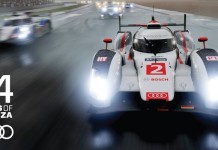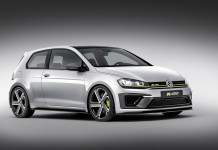Germany’s Volkswagen, the biggest European carmaker, said Thursday it was still churning out a profit despite the global economic crisis, but was cautious about future prospects.
VW posted a second-quarter net profit of 283 million euros (400 million dollars), a huge drop of 83 percent from the same period a year earlier that was limited by government car scrapping premiums in several major markets.
First-half net profit was off by 81 percent at 494 million euros, on sales that fell by 9.4 percent to 51.2 billion euros.
The group delivered a total of 3.1 million vehicles in the six-month period, down five percent, a statement said. It reiterated a non-detailed, full-year forecast of a drop in net profit and sales compared with 2008.
“The high volatility of market developments does not permit any reliable forecasts to be made for the rest of fiscal year 2009,” the statement said.
“Based on the extremely weak business in the first six months of 2009, we continue to expect that our earnings will not reach the level of previous years.”
Investors shrugged off the weak figures and outlook however, and VW shares surged in late trading on the Frankfurt stock exchange.
Operating profit in the six months to June slumped 63.9 percent to 1.24 billion euros but VW fared better than rivals, including Toyota, which VW wants to replace as the world’s biggest automaker.
A major contributor to VW’s results was its high-end Audi division, which is celebrating its centenary and will present its own results on Friday.
In France, Renault reported Thursday a first-half net loss of 2.71 billion euros as sales slumped 23.7 percent to 15.99 billion euros.
Much of that loss was accounted for by losses from Renault’s shareholdings in its Japanese partner Nissan, Swedish peer Volvo and AvtoVAZ of Russia.
“Even in a particularly difficult phase in the international automotive markets we were able to gain share in key markets. This has further improved our position on our way to the top,” a VW statement quoted chairman Martin Winterkorn as saying.
The German group said its share of the global passenger car market had risen to 12 percent.
Deliveries in German, Chinese and Brazilian markets surpassed the figures of a year earlier, the company said, owing in part to German stimulus measures that will taper off later this year.
The statement said VW believed “that it will perform better than the market as a whole and will be able to gain additional market share during the crisis.”
Finance director Hans Sieter Poetsch was quoted as saying that “preserving our financial flexibility is a top priority,” and the group reported cash reserves of 12.3 billion euros as of June 30.
That will help as VW seeks to integrate the heavily-indebted luxury sports car maker Porsche.
Poetsche told a telephone conference with analysts that 2010 could be a tough year, with sluggish or possibly stagnant sales once various government subsidies that have boosted sales this year have tapered off.
VW shares nonetheless gained 5.45 percent to 254.86 euros in late trades on the Frankfurt stock exchange, while the DAX index on which they are listed was 2.09 percent higher.
VW’s results were “fabulous, in light of the global economic crisis,” Nord LB auto analyst Frank Schwope said.
The group has also just managed to ward off a takeover attempt by Porsche, its biggest shareholder and is now working to integrate Porsche as its 10th brand, alongside the Audi, Bentley, Bugatti and Lamborghini marques.
VW is reportedly set to pay around eight billion euros for Porsche’s core car making activities.








